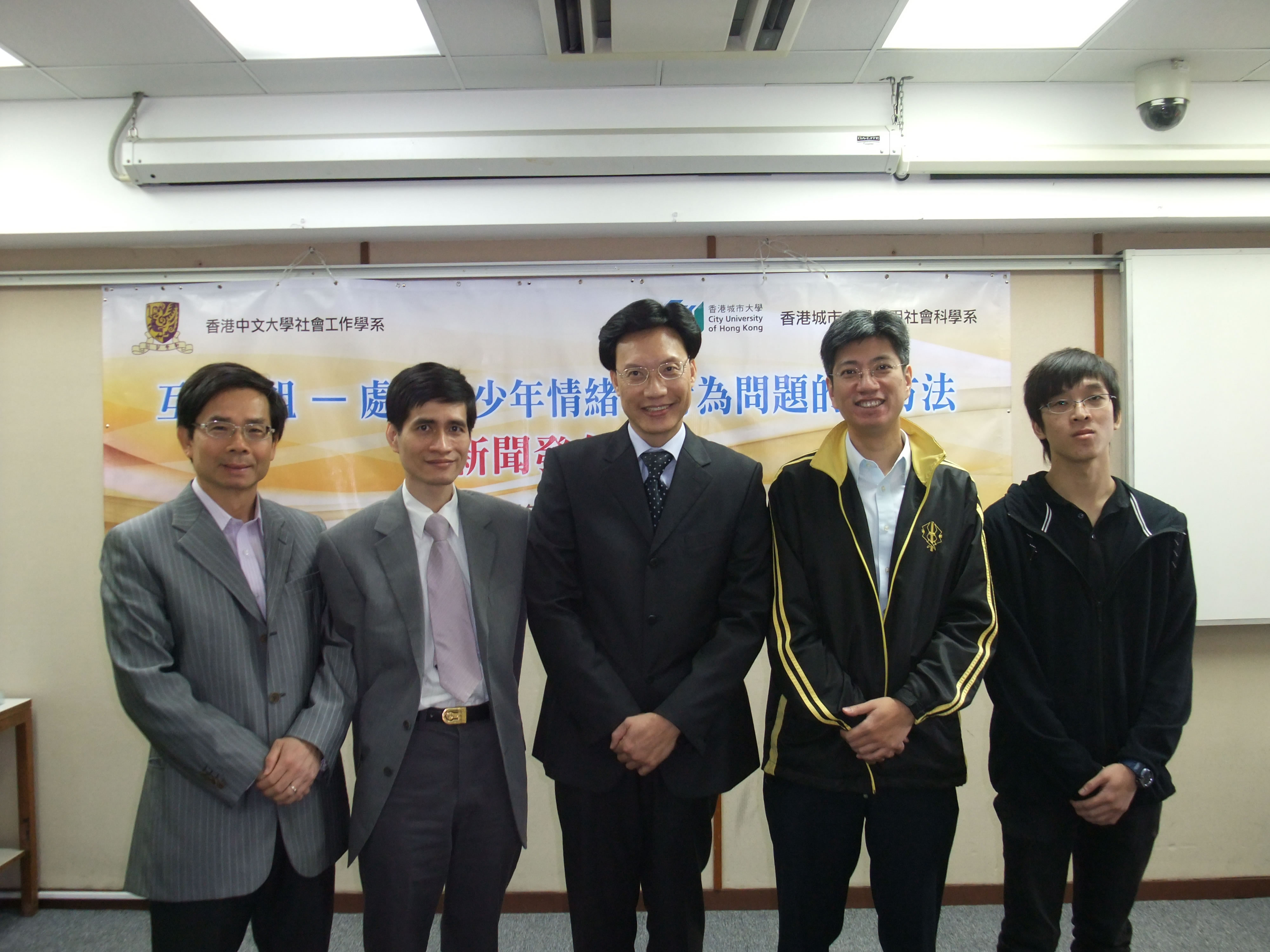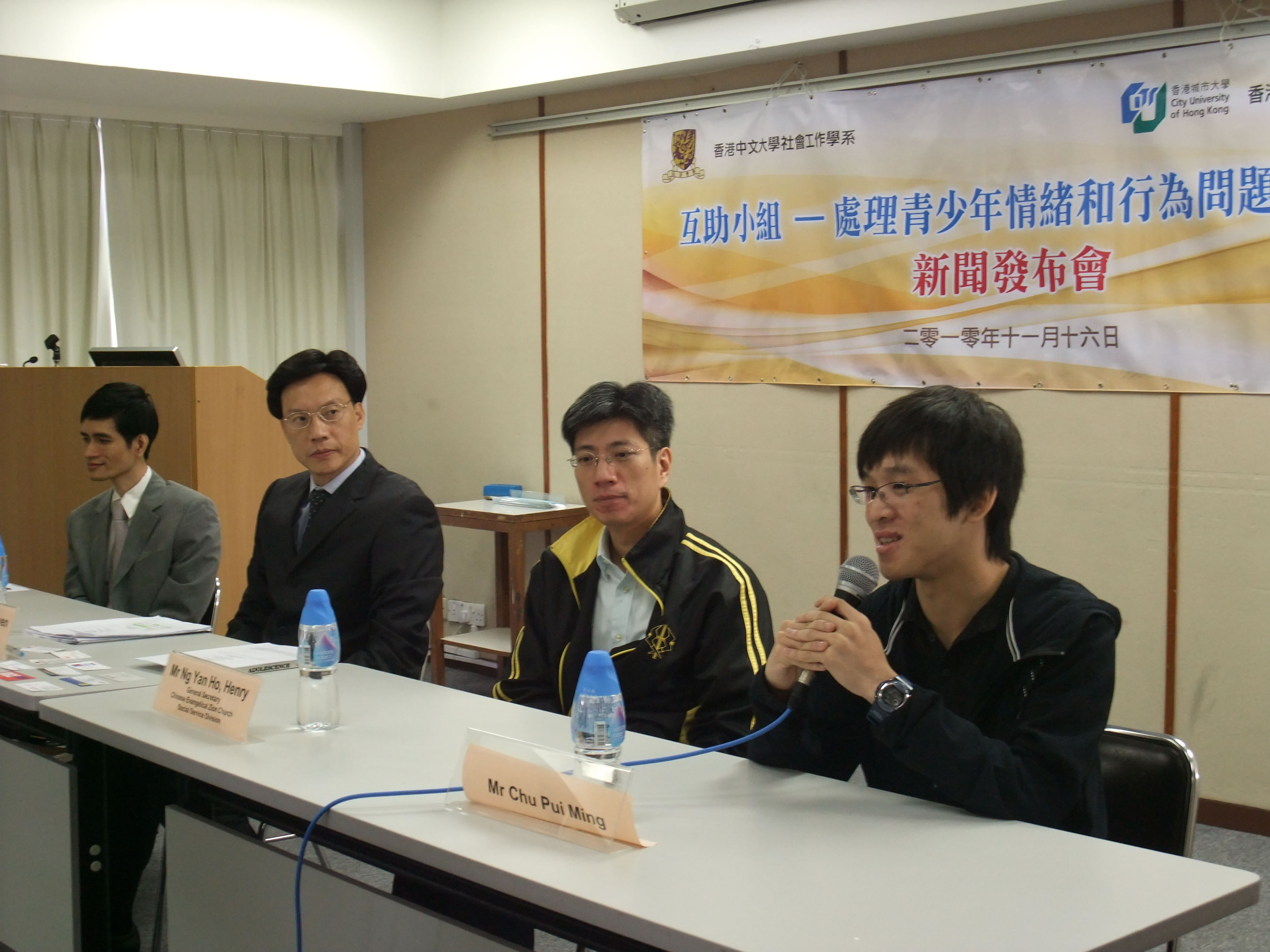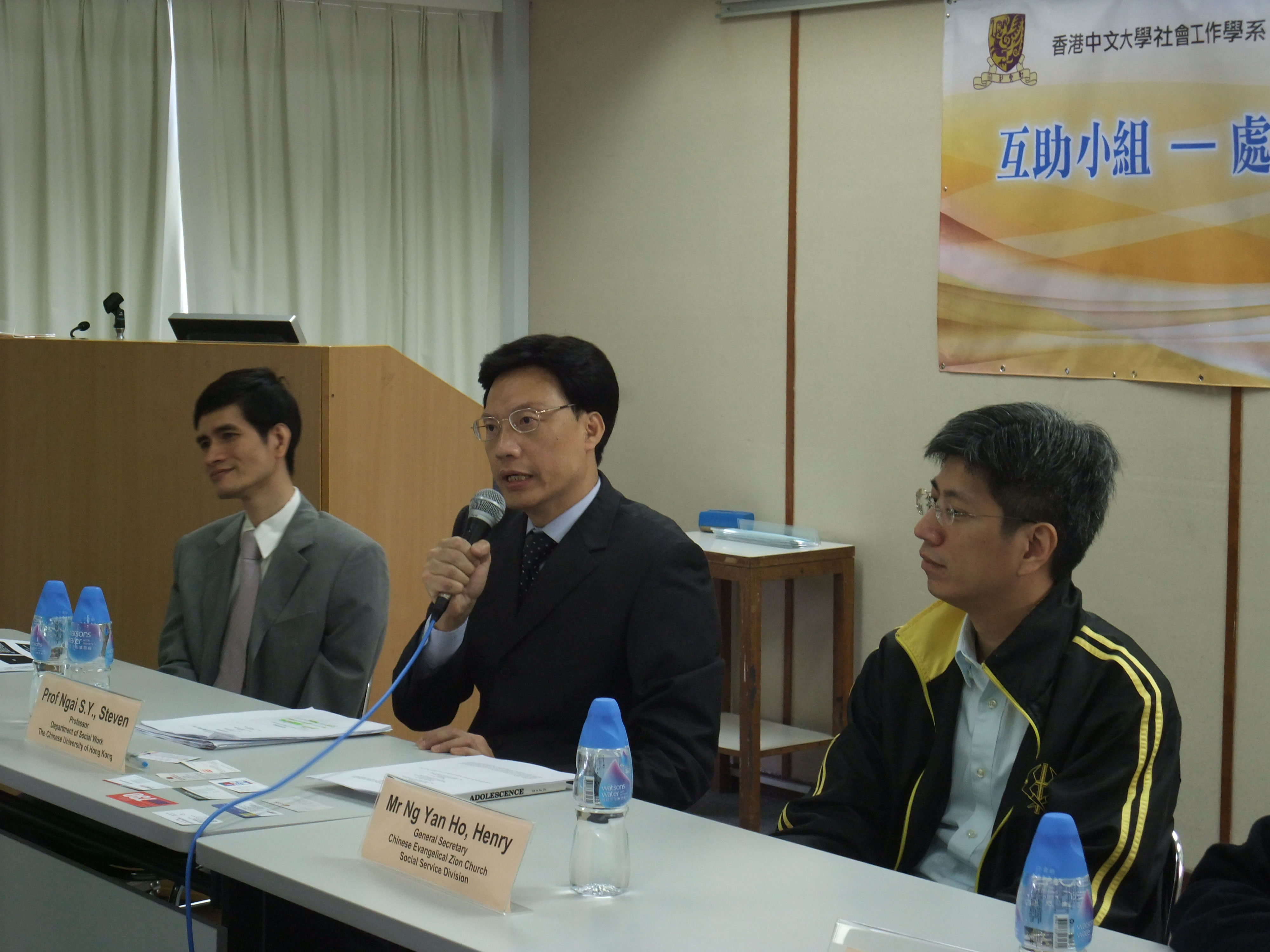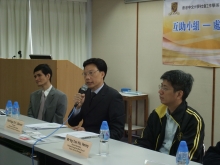CUHK
News Centre
Research by CUHK and CityU Reveals that Mutual Aid Groups can Alleviate Emotional and Behavioral Problems among Youth
Emotional and behavioral problems (EBP) among youth, such as drug abuse, delinquency, depression and suicide attempts have aroused public concern in recent years. Many young people with EBP fail to complete secondary education, encounter chronic unemployment or underemployment, experience a revolving cycle of contact with the judicial system and remain disconnected from their communities. These adverse outcomes are continued and pressing challenges to parents, educators and policy makers. Low cost intervention that can maximize the contribution of social work is crucial.
In view of this, Prof. Ngai Sek-yum of the Department of Social Work at The Chinese University of Hong Kong (CUHK) and Prof. Cheung Chau-kiu of the Department of Applied Social Studies at City University of Hong Kong jointly conducted a study on the use of mutual aid group as an intervention in EBP alleviation among youth from 2008 to 2009. The study sheds light on factors that are conducive to mutual aid and rehabilitation of young people with EBP in Hong Kong. It was published in an international academic journal, Adolescence, in 2009, and will be published in International Journal of Adolescence & Youth.
Methodology
The study consisted of two parts. In the first part, three focus group interviews with 15 Hong Kong social workers were conducted to explore the use of mutual aid groups. The interviewees agreed that mutual aid is a valuable means of extending the benefits of social work. Several factors were found to enhance the effectiveness of the group:
– Identifying commonalities among group members, and setting priorities for the identified needs of these young people;
– Encouraging reciprocal transactions and mutual assistance;
– Balancing support with demand, in which the social worker helps members to take responsibility for their actions and encourages collective action and meaningful activities;
– Optimizing inputs from social workers and members, so that the social worker is able to retreat from the mutual group gradually over time; and
– Bridging members with relevant others in the community, so that the young people have access to mutual aid from socially desirable peers.
To further examine these factors, a second study was conducted in the form of a survey. Data were collected from 433 respondents aged 12 to 24 from 60 mutual aid groups in secondary schools, community-based youth service centers and residential homes. Four main categories of mutual aid groups were examined, including developmental struggles (e.g. learning disabilities) (31.6%), difficult life status (e.g. parent separation) (25.4%), psychiatric condition (e.g. depressive/psychosomatic symptoms) (24.9%), and delinquency-related issues (e.g. substance use) (18.1%).
The mean age of the respondents was 17.6 and 52.8% were females. A majority of them (75.9%) were full-time students, followed by those who were employees (18.9%). More than three-fourth of the respondents received primary education (78.1%). Besides, 37.8% of the respondents had religious affiliation. Over half of the participants (64.7%) lived with married parents. The average household size was 4.3 people and the average monthly family income was HK$12,000. About 15% of the participants received public financial assistance (see table 1).
Research Findings
The results supported that mutual aid can be a key to alleviate EBP. Mutual aid includes the reciprocated aid drawing upon more complex experiential knowledge and problem-solving skills, and reciprocated aid tailoring methods to specific problems of group members. The research provided evidence to show that mutual aid can help these youth to face their difficulties. Moreover, the findings suggested that EBP alleviation does not differ across the categories of mutual aid groups examined in the study, revealing that the reciprocal support needs are essentially the same among various categories of mutual aid groups.
The results also supported that change-inducing group mechanisms can alleviate EBP among young people. These mechanisms include instilling hope on alleviation of the problem, feeling of having problems similar to others and not being alone, exchanging information and experiential knowledge, having a sense of belonging to the group, and learning methods of coping with problems from other group members. Over half of the participants stated that their group members listened to and respected each other’s opinions and that their groups offered them support and insight into their problems. These results illustrated that change-inducing group mechanisms can lead to improvement of EBP among young people.
The study did not support that social work inputs (forming and facilitating the group, providing guidance, and liaising with members of the community / organizations) have a significant effect on EBP alleviation among youth participants. However, further analysis indicated that social work inputs were predictive of change-inducing mechanisms and mutual aid as social workers can release the powerful forces for change and growth. As the young people’s commitment to the group is weak at the early stage, the worker’s leadership can serve to muster them. With their growing commitment, the worker must gradually retreat from the group at the later stage to allow the young people to sustain mutual aid among themselves (see table 2).
Conclusion
The research suggested that mutual aid groups provide an essential channel for young people to cope with pressing needs and social exclusion in their transition to adulthood. Promoting the long-term development of youth mutual aid will eventually benefit society as a whole. Brief and transitory inputs from social workers are inadequate as the benefits may be short-lived, and mutual aid has proven to be a valuable means of prolonging and extending the benefit of social work. As prolonged social work input is costly and unsustainable, free and voluntary mutual aid is a key factor in supporting effective social work services for young people with EBP.
(From left) Prof. Ngai Ngan-pun, Department of Social Work, CUHK; Prof. Cheung Chau-kiu, Department of Applied Social Studies, City University of Hong Kong; Prof. Ngai Sek-yum, Department of Social Work, CUHK; Mr. Ng Yan-ho Henry, General Secretary, Chinese Evangelical Zion Church Social Service Division; and Chu Pui-ming, a youth representative









